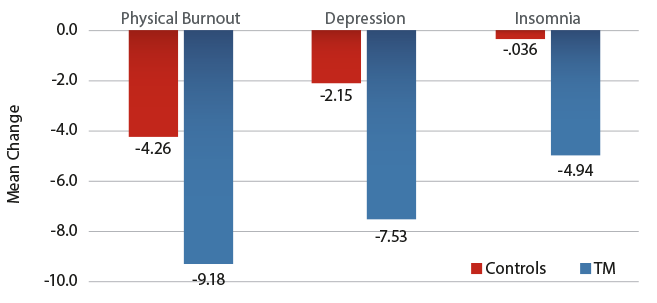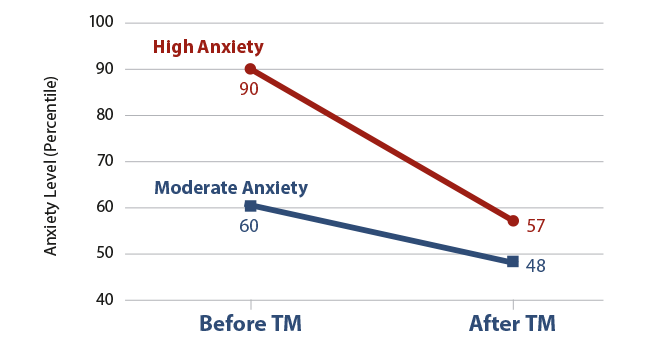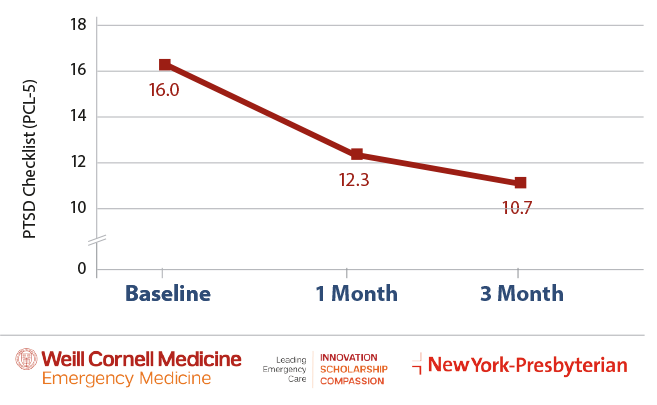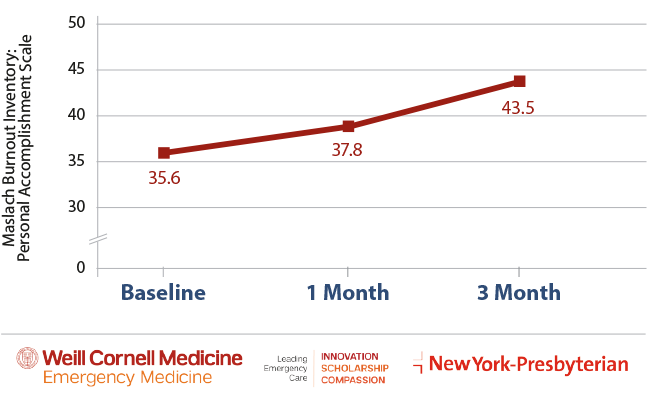HEALTH AND
WELLNESS DIVISION
David Lynch Foundation UK
DavidLynchFoundation.org.uk
Contact Deirdre Parsons at
Info@davidlynchfoundation.org.uk
0845 605 8660

To Reduce Anxiety, Boost Resilience, Heal Trauma
Even before the pandemic, stress levels amongst NHS staff were causing concern. A 2019 NHS survey found nearly 40% had felt unwell due to work-related with knock-on effects including higher levels of bullying, harassment and discrimination.
Today, with the unprecedented pressures of the coronavirus pandemic, the situation is far worse, and demands proven, effective remedies.
“Transcendental Meditation® is an evidence-based, non-pharmacological intervention which is easy to learn and use, and which has an excellent track record in rapidly alleviating the effects of trauma and stress,” says Lindsey Crockett, a Suffolk-based GP who has personal experience of the technique and has recommended its use to patients and colleagues.
Transcendental Meditation has been used worldwide for many years by first responders, including police, firefighters, and military personnel. Several thousand traumatised US veterans of conflicts in Afghanistan, Iraq and elsewhere have found relief from PTSD with Transcendental Meditation, which is now taught at US Veterans Administration hospitals.
“Our doctors, nurses and other healthcare providers are today on the frontline of a different kind of war, but they are likewise risking their lives on a daily basis in the fight against this pandemic,” says Dr Crockett. “Our doctors deserve the very best in terms of protection—effective PPE for their work, and a powerful stress-reducing technique to boost resilience and remove mental, emotional and physical strain.”
Transcendental Meditation is easy to learn, enjoyable and effortless to practice, and provides mind and body with deep rest and refreshment.
In the US, TM® has already been offered widely in hospitals and clinics and results have been rapid. We’re already seeing significant reductions in physician burnout, insomnia, and symptoms of post-traumatic stress in the first three months in those practising TM.
“I found TM easy to learn and practice, and it provides a wonderful sense of well-being. TM has tremendous potential for healthcare providers to reduce burnout and increase job satisfaction and productivity.” — Eric J. Nestler, MD, PhD; Nash Family Professor of Neuroscience and Director of the Friedman Brain Institute; Dean for Academic and Scientific Affairs; Icahn School of Medicine at Mount Sinai, New York, NY
“Like the rest of the nation, we are deeply grateful to all those on the front-line of medical care, and all those who are supporting them in so many ways,” says Deirdre Parsons, Executive Director of the David Lynch Foundation UK. “ We are honoured to offer these heroic healers this practical approach to strengthen their resilience and support their wellbeing during this challenging time.”
David Lynch Foundation UK
DavidLynchFoundation.org.uk
Contact Deirdre Parsons at
Info@davidlynchfoundation.org.uk
0845 605 8660
The coronavirus pandemic is placing debilitating demands on the professional and personal lives of NHS staff. New tools are required to help alleviate this enormous burden of stress. According to a recent NHS survey, nearly 40% of NHS employees had felt ill in the previous year due to work-related stress. Chronic stress has a negative impact on work satisfaction and performance, as well as being linked to substance abuse and addiction, medical errors, and even physician suicide.
The critical need for scientifically documented, non-pharmacological interventions for this crisis can be effectively addressed through an evidence-based meditation technique known as Transcendental Meditation (TM).
TM is an easy-to-learn, enjoyable-to-practice mental technique for deep relaxation and stress-reduction. It has been successfully offered in medical schools, academic and Veterans Administration medical centres (in the USA), hospitals, military academies, substance abuse centres, prisons, and other settings worldwide. Transcendental Meditation is practised for 15-20 minutes twice a day. To date, more than ten million people of all ages, nationalities, and religions have learned the technique.
TM practice produces a unique neurophysiological state that combines deep metabolic rest with heightened mental alertness. This state of deep relaxation, which researchers have termed “restful alertness,” is a potent antidote to stress.
Over 400 peer-reviewed published studies on TM have documented improvements in a wide variety of stress-related disorders, as well as significant improvements in cognitive function and overall health and well-being. In the USA, the National Institutes of Health and the Department of Defense have awarded nearly $30 million in grant support for research on TM.
The TM technique is an effective tool for addressing professional burnout. It has been adopted in numerous healthcare provider wellness programmes as a stand-alone approach or as an adjunct therapy to make existing programmes more effective. These programmes include:
Peer-reviewed published studies have documented that TM practice ameliorates the symptoms of burnout by producing the following effects:
Meta-analyses have shown that TM reduces anxiety and PTSD to a significantly greater degree than other forms of meditation or relaxation. Studies have also shown that TM produces clinically meaningful results often within a few days to two weeks.
A 4-Month Randomised Controlled Trial with Faculty Physicians at Loyola Stritch Medical School, Chicago

TM decreases depression, stress, and burnout in physicians Loiselle M, et al. Effect of Transcendental Meditation on Physician Burnout, Depression, and Insomnia: A Randomised Controlled Study. In preparation for publication, 2020.
Meta-Analysis of 16 randomised Controlled Trials in Individuals with High and Moderate Anxiety

Orme-Johnson DW, Barnes V. Effects of the Transcendental Meditation Technique on Trait Anxiety: a Meta-Analysis of randomised Controlled Trials. Journal of Alternative and Complementary Medicine 20 (2013): 330-341.
A 3-Month Trial with Emergency Medicine Physicians at Weill Cornell Medical Center—New York Presbyterian Hospital

A 3-Month Trial with Emergency Medicine Physicians at Weill Cornell Medical Center—New York Presbyterian Hospital

Transcendence: Healing and Transformation through Transcendental Meditation by Norman Rosenthal, M.D. (Tarcher-Penguin 2011)
Super Mind: How to Boost Performance and Live a Richer and Happier Life through Transcendental Meditation by Norman Rosenthal, M.D. (Tarcher-Penguin 2016)
Strength in Stillness: The Power of Transcendental Meditation by Bob Roth (Simon and Schuster 2018)
COMMENTS FROM HEALTH PROFESSIONALS
Dr Lindsey Crockett, BSc (Hons), MBBS, MRCGP, DFSRH. Senior Partner, Peninsular Practice, Suffolk, UK
“Transcendental Meditation is highly effective in providing deep rest and removing stress. I have experienced the benefits for myself, and after fifty years of scientific research has validated its results, I have no hesitation in recommending the widespread use of TM to help NHS staff recover their wellbeing and develop their resilience.”
Dr Donn Brennan MB BCh BAO DCh D Obs MRCGP Founding President of the Ayurvedic Practitioners Association, UK
“Forty years of practising TM has brought me increasing resilience, peace and joy over the years. It has transformed my medical practice as insight grew, through TM, into the healing potential of patients and how to empower their journey back to health. I have prescribed TM often and had the fulfilment of seeing the beneficial transformations in my patients.”
Fraer Stevenson Senior Emergency Medical Technician,
East of England Ambulance NHS Trust
“Learning TM has been the single most important thing I have done to help with my health, wellbeing, and happiness. There have been many times in my career when I’ve questioned the impact the job has on my health — both mental and physical — I wish that I’d had TM at the start of my career to help support me through those times
I feel TM has helped me in every area of my life to be more me, to keep that connection to the inner stillness and silence within, regardless of what’s going on around me, it helps everything to be calmer, happier, more fulfilling. It washes away the stresses that can build up and get in the way of seeing and experiencing life as it should be — full of kindness, joyfulness, and without fear.
Spending 20 minutes twice a day practising TM has given me more than I’d ever imagined it would; it’s given me back myself.”
Eric J. Nestler, MD, PhD Nash Family Professor of Neuroscience and
Director of the Friedman Brain Institute;
Dean for Academic and Scientific Affairs;
Icahn School of Medicine at Mount Sinai, New York, NY
“I found TM easy to learn and practice, and it provides a wonderful sense of well-being. TM has tremendous potential for healthcare providers to reduce burnout and increase job satisfaction and productivity.”
Erica Cargill Jones, MD Clinical Associate Professor of Medicine;
Weill Cornell Medical College, New York, NY
“Nothing can erase the stress and anxiety in our lives, but meditation has taught me how to handle them better. It is important for my patients to know how much it has helped me. I recommend it to everyone to help lower blood pressure and heart rate, help with sleep, and think more clearly.”
Suzanne Steinbaum, MD Director of Women’s Cardiovascular Prevention,
Health, and Wellness at the Mount Sinai Hospital;
Senior Faculty in Medicine and Cardiology,
Icahn School of Medicine at Mount Sinai, New York, NY
“As a cardiologist, I am aware of the effects of stress on the development of heart disease. Without managing stress and other issues that drive up inflammation and plaque formation, I would not be adequately caring for my patients. TM is a tool which addresses the root of many of these issues, including stress, anxiety, depression, and unhealthy lifestyle behaviors, that lead to cardiovascular disease. I believe TM should be offered to all patients who are seeing a cardiologist, or even to those who are trying to prevent ever developing heart disease or strokes.”
Hassan A. Tetteh, MD, MBA Command Surgeon, National Defense University;
Chief Medical Informatics Officer, United States Navy;
Associate Professor of Surgery at the Uniformed Services
University of the Health Sciences; adjunct faculty at
Howard University College of Medicine; Washington, DC
“TM is proven to lower stress, high blood pressure, and depression and this can lead to improved health. With improved health, you become more effective in your relationships, at work, and in life. When you are healthy and effective in all the things you are meant to do, you move closer to realizing your real purpose in life, and this ultimately leads to happiness.”